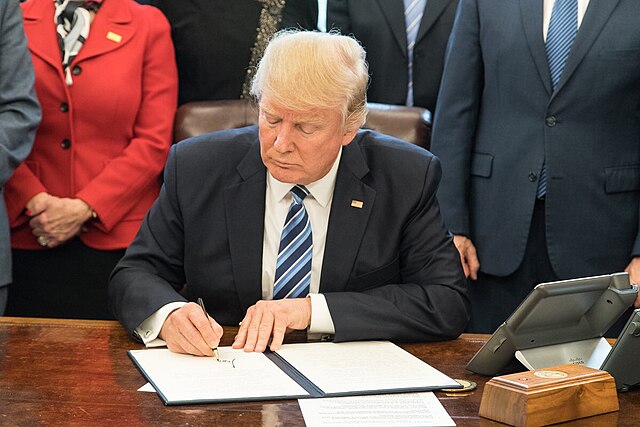Spain made history when it beat England 1-0 in the 2023 FIFA Women’s World Cup. With 12 million people watching, the team dominated the field and left with trophies commemorating its first World Cup win. However, the players’ hard-won victory was overshadowed by the inappropriate behavior exhibited by the president of the Spanish Football Federation, Luis Rubiales, at the official post-match ceremony. Jenni Hermoso, one of the match’s star players, approached Rubiales to claim her golden medal but was met instead with a kiss on the lips — a forceful gesture she later said she “didn’t like” in an Instagram live video.
Despite this assault, Rubiales made no attempt at an apology. When pressed on the issue by Spanish radio station COPE, Rubiales denied any wrongdoing. Even the organizations running soccer have done little to address the kiss. The governing body of international soccer, FIFA, reluctantly gave him a slap on the wrist by suspending Rubiales from all football related activities. Many felt that this wasn’t a harsh enough punishment, as the suspension from his position was only temporary. Spain’s team was of this mindset, and its players fought to get “strong responses from public authorities” by threatening to resign en masse if Rubiales was not permanently removed from his position. Rubiales responded by saying, “I will not resign, I will not resign, I will not resign,” at an emergency meeting for the Spanish Soccer Federation. Weeks later, he sang a different tune. He resigned on Sept. 10 and told Piers Morgan, “I cannot continue my work.”
This controversy is indicative of a larger attitude surrounding women’s sports. A satirical article by Sally Jenkins shows how some men in authoritative positions over women’s teams generally feel the players owe them their success, and therefore their bodily autonomy. We’ve seen this behavior before in Simone Biles’ case, who was taken advantage of by her male coach as a young girl. When she testified in court against him, she said she blames, “an entire system that enabled and perpetrated his abuse.”
We will continue seeing this behavior come to light if severe actions are not taken against both the men perpetuating this issue and the attitude behind it. Furthermore, victims should not be responsible for holding their abusers accountable. That is the responsibility of the people who have agreed to protect their players and who have been doing an insulting job of it.
On top of protecting female players’ bodily autonomy, professional leagues need to make other improvements in their handling of women’s sports. Women will not be treated equally by their coaches, administrators and audiences until they are treated fairly in every aspect of their professional lives. That includes equality in their pay grades.
According to a recent analysis from CNN, the prize money for the Women’s 2023 FIFA World Cup totaled $110 million — $330 million less than what the men’s teams won in 2022. This, of course, is not a new problem. For years, women’s teams have struggled to achieve pay equality or even be paid at all. Jamaica’s female players recently spoke out about the Jamaica Football Federation’s complete failure to pay them for their participation in a prior World Cup event.
Another challenge for female athletes is how players are treated when they become pregnant or choose to have children while maintaining their careers. Some players, including former WNBA player Sandy Brondello, choose to wait until their retirements to have children due to the pressure placed on them. Other players who choose to have children amid their careers are often blamed for poor performance. U.S. national soccer team member Jess McDonald said she was often accused of being the reason for her team’s losses because her teammates assumed she couldn’t manage both a child and the physical and mental toll of motherhood. However, athlete fathers are rarely, if ever, accused of the same thing.
In training conditions for professional sports, women are commonly left with the men’s leftovers. French soccer player Mélissa Plaza recently claimed the women’s national team was repeatedly forced to accept inadequate accommodations. By being considered a lower priority than the men’s team, players had to regularly “pick up the scraps left over from the boys.” This included being forced to deal with the men’s old uniforms and having second pick for practice time slots. By putting women’s teams behind men’s, CEOs are keeping women’s sports down. Some say women’s sports are given less because they earn less, but I believe it’s the opposite. How can women’s teams be expected to bring in the same amount of revenue as men’s if they’re only being provided with a fraction of the funding, resources and incentive?
Sexism runs rampant in the sports world. Many male sports executives choose to ignore this problem, if not contribute to it directly. By sweeping these problems under the rug, unacceptable behavior becomes normalized and is allowed to become even more prevalent. The only solution to this problem is for the CEOs, leagues and organizations to listen to what women are asking for. The in-one-ear-out-the-other approach has to be stopped. Providing equality and justice is the only way forward.














